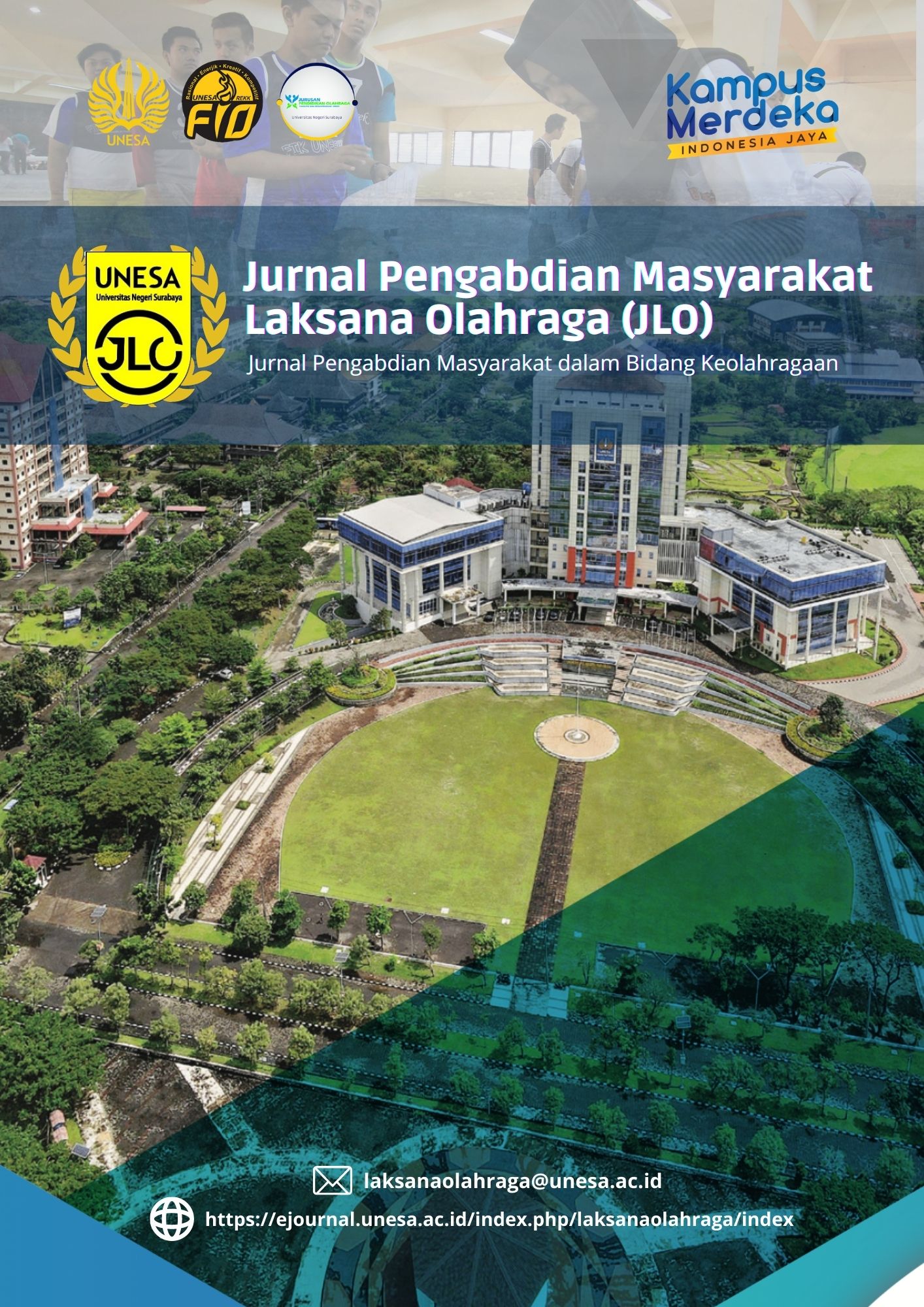Peningkatan Kesehatan Mental Remaja Melalui Fun Games dan Deteksi Dini Gangguan Kejiwaan di kabupaten Lamongan
DOI:
https://doi.org/10.26740/laksanaolahraga.v1i1.50110Keywords:
mental health, fun games, psychiatric disordersAbstract
The COVID-19 pandemic in Indonesia, which has been experienced since March 2020, has brought about changes in people's lives in all fields, including education. Fun education with various interactions between friends, teachers and educational media must be replaced by distance learning (PJJ) or home learning (BDR). This condition not only has a positive impact, but also a negative impact, especially when many students experience boredom, anxiety, depression, longing for schoolmates, and also worry because of the economic conditions of families affected by the co-19 pandemic.
The conditions mentioned above will greatly affect the mental health of students. But unfortunately, many teachers are less sensitive and concerned about the various negative excesses that students experience while participating in online learning. Often many teachers, parents and the community only pay attention to physical symptoms that are disturbed, but symptoms of potential psychiatric disorders are sometimes ignored. A new mental health problem becomes a problem when it has an impact on physical health or when deviant behavior arises. This training emerged as a form of solution to support students' mental health through fun games and early detection of mental disorders.
Downloads
Downloads
Published
How to Cite
Issue
Section
 Abstract views: 321
,
Abstract views: 321
, PDF Downloads: 389
PDF Downloads: 389









